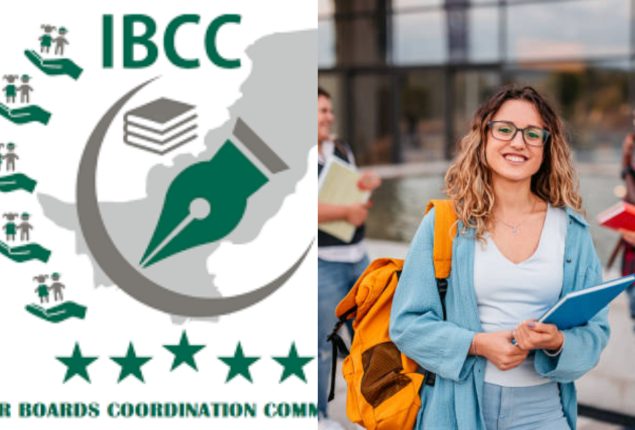

IBCC set to give “Global Recognition” for Intermediate certificate
Big news for Pakistani students planning to study abroad: the country’s Intermediate Certificate is on track to receive global recognition, including acceptance by universities in the UK.
Dr. Ghulam Ali Mallah, Executive Director of the Inter Board Coordination Commission (IBCC), announced that efforts are actively underway to make Pakistani Intermediate qualifications acceptable to international universities. The IBCC is already working with ECCTIS in the UK to make direct university admissions easier for Pakistani students. Talks are also in progress with other foreign educational boards to expand recognition worldwide.
Dr. Mallah emphasized that the goal is to ensure the credibility of Pakistani qualifications while simplifying the admission process for students applying overseas. In a significant move, the IBCC has abolished the old sealed-envelope requirement for certificate verification. Now, all 29 educational and technical boards across Pakistan use online verification systems, making the process much smoother and faster.
Digital Reforms to Ease the Process:
IBCC is going digital in other areas too. Soon, students from religious seminaries will also be able to verify their credentials online. Already, the commission has launched an online portal for equivalence and attestation services, complete with QR-code-based certificates for instant verification.
Since 2023, the IBCC has operated under a new legal identity—transformed from a committee into a formal commission through an Act of Parliament. The revamped body now regulates foreign educational qualifications in Pakistan under a strong, clearly defined framework. An online portal has been launched to register and evaluate foreign boards against 15 specific criteria to ensure only credible qualifications are accepted.
Under Dr. Mallah’s leadership—he became Secretary in 2020 and now holds a permanent role—IBCC has introduced several tech-driven improvements. These include automated verification portals, SMS and email alerts, and a centralized database for educational records to improve accessibility and accuracy.
Better Support and Legal Reforms:
To improve public services, IBCC has set up social media support channels, a helpline, and customer care desks to handle student and parent queries more efficiently.
One of Dr. Mallah’s major goals was to build a legal foundation for IBCC’s operations. He collaborated with lawmakers, provincial boards, and education experts to draft the IBCC Act, which now provides a solid legal and operational framework for managing equivalence, attestation, and coordination across boards.
Academic Reforms to Modernize Learning:
IBCC has also introduced key academic reforms. These include a shift toward conceptual and practical assessment to reduce reliance on rote memorization. A new model assessment framework is being implemented across all boards to ensure standardized, fair evaluations. A revised grading scheme now aims to better reflect students’ actual performance and reduce pressure to achieve unrealistically high marks.
Other student-friendly reforms include replacing the term “supplementary exam” with “second annual examination,” allowing students two chances per year to improve their results. IBCC has also proposed enhanced re-evaluation options, standardized academic calendars, and teacher training programs to uplift the overall quality of assessments.
With global recognition for Pakistan’s Intermediate Certificate on the horizon, students can expect smoother admissions abroad and more respect for their qualifications. The reforms signal a major step forward in aligning Pakistan’s education system with international standards.







